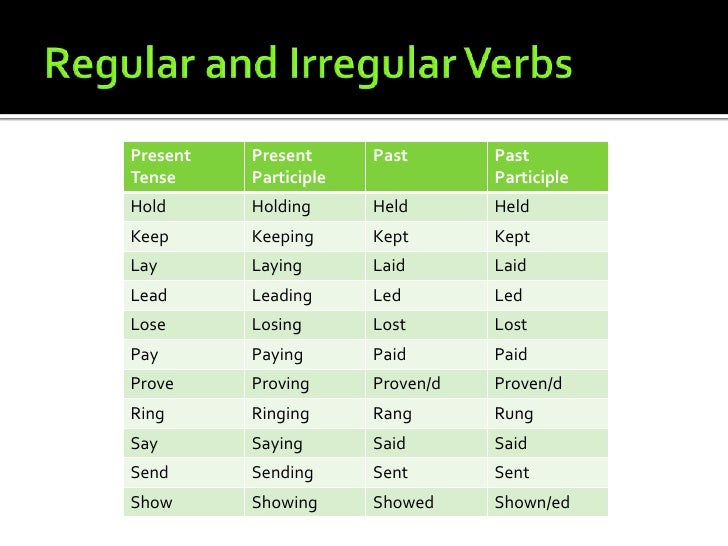
In addition, some people assume that ‘lead’ follows the same pattern as ‘read’ (where ‘read’ is present and past tense).īut as long as you keep in mind that the past tense of ‘lead’ is always ‘led’ (no matter the context), it should be easy to avoid mistakes. The simple present tense version of lead as a verb is used when one wants to denote the action of moving something forward either literally or figuratively through a physical aspect or inspirational aspect in a time that is simply taking place in the now. The main problem here is that ‘led’ (the past tense verb) is pronounced the same as ‘lead’ (the metal). However, be careful not to mix it up with the initialism LED (pronounced ‘ell-ee-dee’), which is short for light-emitting diode (a small light used in some electronic products). In all cases, it is the past tense of the verb forms of ‘lead’: Thankfully, the word ‘led’ (also pronounced to rhyme with ‘bed’) is much easier to understand. This use of ‘lead’ is pronounced differently and rhymes with ‘bed’. She kept drawing until the lead in her pencil broke. Content you previously purchased on Oxford Biblical Studies Online or Oxford Islamic Studies Online has now moved to Oxford Reference, Oxford Handbooks Online, Oxford Scholarship Online, or What Everyone Needs to Know®.

2) To connect one object or place to another. The Oxford Biblical Studies Online and Oxford Islamic Studies Online have retired. Thank you for subscribing to our newsletter!ĭespite the difference, this term is also pronounced to rhyme with ‘seed’.įinally, ‘lead’ is also a soft, heavy metal (or the graphite in a pencil): Past Participle form: Steve had led the receptionist to his new desk. My laptop died after I lost the lead I needed to charge it. This use of ‘lead’ also rhymes with ‘seed’ when spoken.Ī slightly different use of ‘lead’ is to mean ‘electrical cable’: The verb 'to lead' in English Grammar Monster search our site by Craig Shrives Conjugation of 'To Lead' The verb 'lead' is an irregular verb. She is leading the field with her research.Īfter three laps, he was still in the lead. being in an advanced or winning position) or a noun (i.e. As above, this can either be a verb (i.e. Past Participle (V3) : The past participle form of lead is used with have or has to create the present perfect tense. For example, He led the team to victory in the championship last year. We read books, but in past tense use we say: e.g. Simple Past Tense (V2): The simple past tense of lead is used to describe a completed action in the past. Bella would like you to know that she considers the lead unnecessary and undignified.īoth verb and noun forms here are pronounced to rhyme with ‘seed’.Īnother use of ‘lead’ is related to winning and success. It is the past tense and past participle of lead as a verb when the pronunciation of lead rhymes with bead. People probably muddle up led (past tense of to lead) with lead because of the word read. We need to walk the dog, but I can’t find his lead. V1 V2 V3 Form of Lead V1 V2 V3 Lead Led Led Synonym Words For LEAD attend drive force get manage see show accompany chaperone coerce compel conduct convey convoy direct escort guard impel induce persuade pilot precede prevail. a position ahead of others, or an example for people to copy. Lead Past Simple, Simple Past Tense of Lead Past Participle, V1 V2 V3 Form Of Lead Lead means: cause to go with one by holding them by the hand, a halter, a rope, etc. The success of his company has led him to invest in new enterprises. The guide led us to the top of the mountain.

Without a lead to follow, Holmes would never solve the case. The past tense and participle forms of lead is led /led/. The past tense form is leaded and past participle form is leaded. the act of guiding), but it can also be a noun (i.e. Perhaps the most common use of ‘lead’ is to mean ‘guide’ or ‘show the way’: We can break down the uses of ‘lead’ into four main categories: In most cases, the irregularity concerns the past tense (also called preterite) or the past participle.

Lead (Guidance, Winning, Cables and Metal) The English language has many irregular verbs, approaching 200 in normal useand significantly more if prefixed forms are counted. So, to help you avoid errors in your work, we’ve prepared a quick guide to the various uses of ‘lead’, along with some advice about not mixing up the words ‘lead’ and ‘led’. But they didn’t, and now we have to live with it. In fact, somebody should have put a stop to this nonsense a long time ago. Verbs like 'bend, bent, bent'.The word ‘lead’ has many definitions. Verbs with the same past simple and past participle forms. The irregular verbs in the table below have the same pattern as lead.


 0 kommentar(er)
0 kommentar(er)
